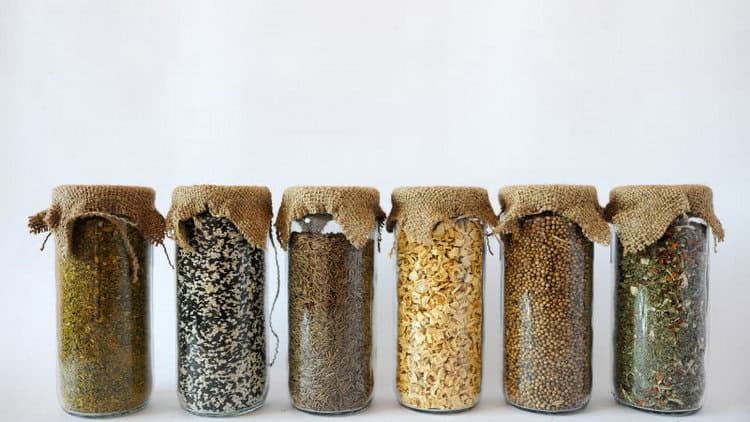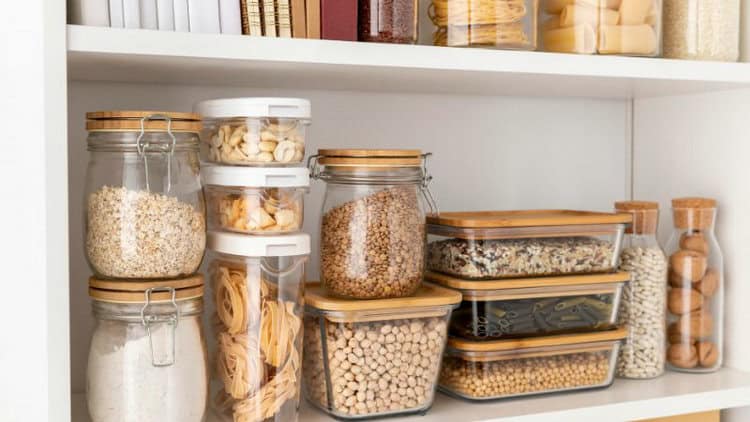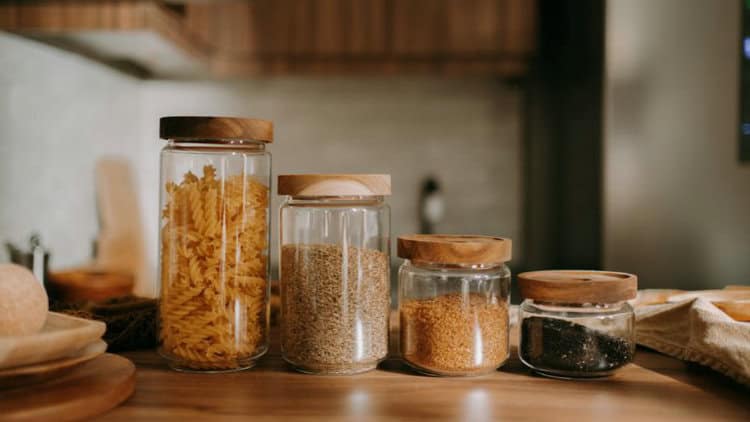While plastic containers have long been the go-to, concerns about chemical leaching and environmental impact drive consumers towards more responsible options. Glass is a natural, safe, and surprisingly versatile material that offers a clear advantage over its competitors.
This article explores the many benefits of glass packaging, highlighting why it might be the perfect choice for your product and the planet.

What are the Advantages of Glass Packaging?
Glass packaging offers multiple benefits from an environmental, consumer, and quality perspective that make it a standout choice for your products.
Environmental Benefits of Glass Packaging
100% Recyclable and Reusable
One of the main reasons glass is sustainable is because glass is 100 % endlessly recyclable. Recycled used glass is always part of the recipe for new glass, so it is a permanent material in the circular economy. Glass can be recycled infinitely without losing quality or purity. Closed-loop recycling means that a recycled glass container becomes a new glass container without waste.
Made from Abundant Natural Raw Materials
Glass is made using three plentiful, locally sourced elements: sand, soda ash, and limestone. These raw materials are widely available. While some concerns about silica sand mining causing environmental damage, glass is still considered more sustainable than plastic made from non-renewable fossil fuels.
Inert and Non-toxic
Glass is non-toxic and doesn’t react with the products. Unlike some plastics, glass doesn’t leach any harmful chemicals. When glass ends up in the environment, it is less likely to cause pollution than plastic. Glass is inert, so even if it reaches landfills, it will not emit greenhouse gases like methane.
Saves Energy When Recycled
Recycling glass reduces the energy consumption and CO2 emissions of producing new glass. A 10% increase in recycled glass cullet in the glass melting mixture can decrease energy consumption by 2-3%; currently, over 74% of the UK glass container waste stream is recycled.
Reusable and Long-lasting
Glass is durable and can be reused often, especially when compared to single-use plastics. Refillable glass bottles have a lower environmental impact over their life. The resilient nature of glass makes it a packaging material meant for multiple uses, not just one.
For Consumer Appeal: Safety and Aesthetic Considerations
Why is glass considered one of the safest packaging materials?
Glass is non-reactive and impermeable, which makes it an ideal choice for storing food and beverages. Its composition, which includes natural substances like sand and limestone are natural materials, ensures that it does not leach chemicals into the products.
The U.S. Food and Drug Administration (FDA) has classified glass as Generally Recognized as Safe (GRAS), which indicates its inherent qualities to protect the quality and purity of what it contains. This inert nature of glass means you can trust your consumables remain fresh and untainted.
So, in summary, the glass packaging, being non-reactive, ensures that no harmful chemicals leach into your food and drinks.

Why is glass aesthetically pleasing?
Glass packaging offers you the flexibility to merge both function and fashion, tailoring the look and feel to the brand’s unique identity through various design elements such as shape and color.
The appearance of glass can be crafted to reflect a premium appearance with options like a matte finish for a subtle, sophisticated touch, or a glossy surface for a more striking look.
Clear glass provides a window to the product, enhancing consumer trust. The transparency of glass can showcase the true color of the contents within, emphasizing purity and quality, while the addition of colors like classic amber can create a perception of protection against UV light.
The potential for diversity in the shape of glass packaging allows you to differentiate your product and give it a classic appeal or a modern twist. By customizing the glass packaging, you can develop a distinctive form that aligns with your brand, whether aiming for luxury, simplicity, or practicality.
What are the Specific Uses of Glass Packaging?

Food and Beverage Sector
Glass bottles or jars are commonly used to package various food and drink items. Beverages, sauces, and condiments retain their taste better in glass bottles and jars due to their nonporous nature. Glass containers are impermeable, preventing contamination and preserving the freshness of foods and drinks over time.
- Bottles for syrups, sauces, juices, beer, wine, spirits etc.
- Glass jars for jams, jellies, bath salts, herbs, and other items.
Pharmaceutical Packaging
The pharmaceutical industry relies on the purity and safety of its packaging. Glass vials and ampoules are commonly used due to their ability to maintain the integrity of pharmaceuticals without interaction. Non-toxic, impermeable, does not react with the products, and colored glass can protect light-sensitive medicines, which is the reason why it stands out.
- Type I Borosilicate Glass: Used for packaging aqueous products, as it has high hydrolytic resistance and is chemically inert. It can withstand sterilization temperatures.
- Type II Treated Soda-Lime Glass: Used for packaging alkali-sensitive products, infusion fluids, blood and plasma. Suitable for acidic and neutral aqueous preparations.
- Type III Regular Soda-Lime Glass: Used for packaging solids and non-aqueous preparations like tablets and powders. Not suitable for alkaline sensitive solutions.
Cosmetics and Personal Care
For your cosmetics and personal care items, glass bottles and jars offer an upscale and healthy packaging option. The inert qualities of glass protect the product from chemical reactions, keeping your skincare and cosmetics uncontaminated.
- Preservation: Glass maintains the efficacy of sensitive cosmetic formulations.
- Presentation: Transparent glass bottles add a luxurious feel to personal care products, complementing the aesthetic appeal.
Frequently Asked Questions
In what ways is glass packaging considered superior to plastic packaging?
Glass is considered generally recognized as safe (GRAS) for food and beverage storage, as it is chemically inert and impermeable. It also offers a higher premium appeal due to its clarity and heft, often desired for branding.
How does the durability of glass packaging compare to other materials?
While glass may be more fragile upon impact, it is resistant to scratches, chemical corrosion, and degradation over time, maintaining its clarity and integrity long after other materials have worn out.
What makes glass packaging an environmentally friendly option?
Beyond being recyclable, glass production has a lesser ecological impact as it is made from readily available, natural materials like sand, reducing the dependence on fossil fuels typically used in plastics production.
